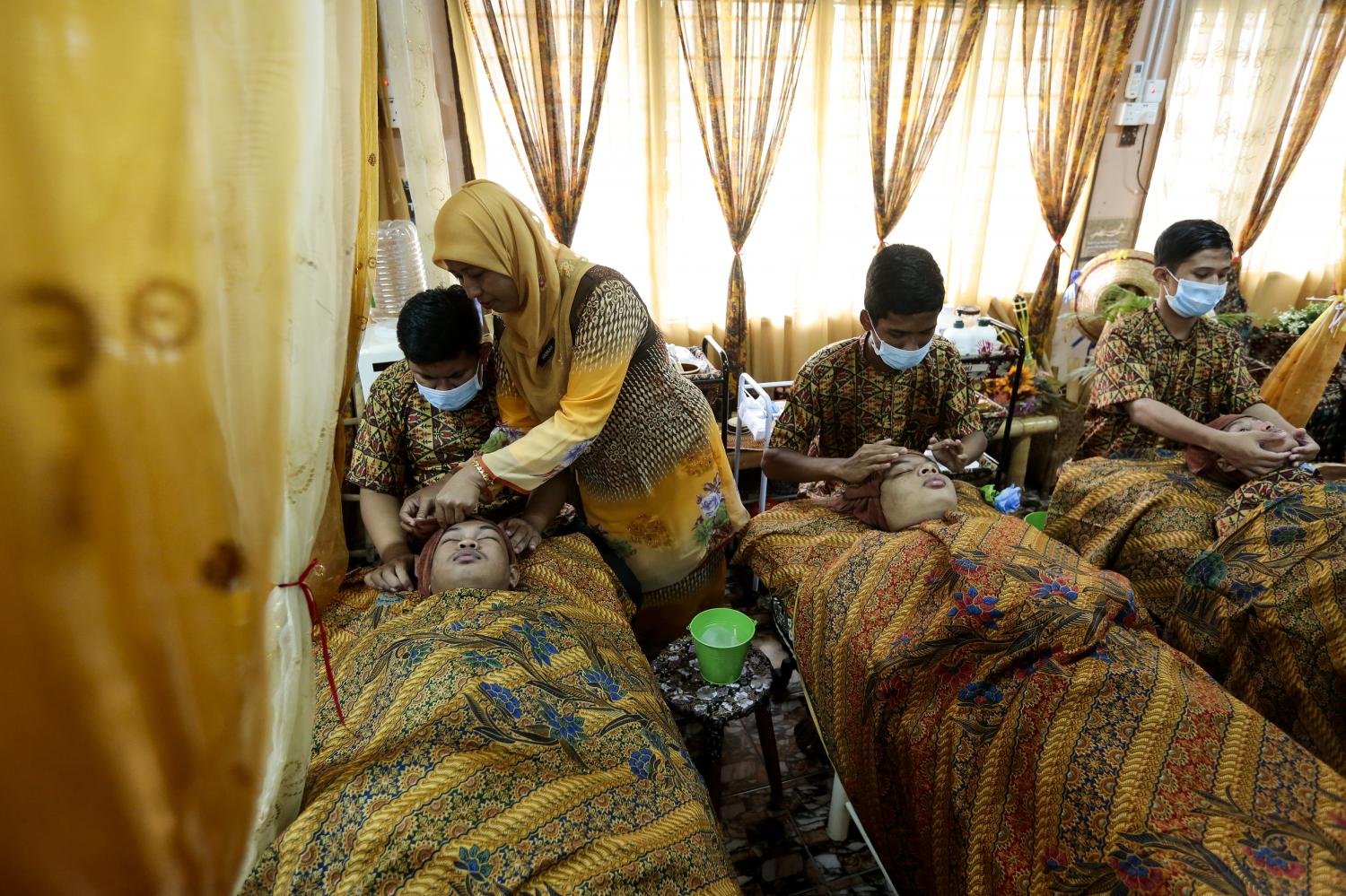
Teachers play a crucial role in the mental growth and the academic development of students, but their role in the development of children with disabilities is much greater. In order to impart knowledge effectively, teachers who work with students with special needs must be patient, understanding, and most importantly, have faith.
KA Razhiyah, a special education teacher at Panji Secondary School in Malaysia, fits the bill. Her dedication and her project -- in which she offers spa treatment courses to students with special needs -- have garnered numerous praises and inspired Malaysia's Ministry of Education to do more for children who have disabilities in the country.
On Oct 15, Ms Razhiyah will be in Bangkok to receive the prestigious Princess Maha Chakri Award (PMCA). She will also receive a US$10,000 (about 302,000 baht) prize and a golden pin from HRH Princess Maha Chakri Sirindhorn.
PMCA is a biennial award given to outstanding teachers from Asean countries and East Timor who have made a significant impact on students' lives.
The award was created in 2015 during HRH Princess Maha Chakri Sirindhorn's 60th birthday celebration in recognition of her contribution and commitment to teachers' welfare and education -- especially those working with disadvantaged groups in Thailand and Southeast Asia.
True calling
Ms Razhiyah, 60, became a teacher in 1985. She started off teaching in mainstream schools, but after some time, she felt like she needed more of a challenge.
In 1999, she moved to Kota Bharu in Kelantan. There, she found her true calling -- teaching children with cognitive impairments and helping them discover their hidden potential.
Her students have a range of different problems -- some have autism and Down syndrome, while others are what she referred to as "slow learners". However, Ms Razhiyah said that despite their shortcomings, her students have always managed to surprise her.
"We have to admit that these students' may lack cognitive capacity and they may not be as intelligent as other students, but they too have talents which most people fail to recognise," she told the Bangkok Post.
"It is the teacher's responsibility to explore and develop these hidden talents so they can live with dignity."
In 2008, she founded a special class called "Teratak Spa", which means "spa hut", at her school to provide spa courses to children with special needs, a creative solution which she believes will equip her students with other skills, in addition to formal education.
"I teach students with learning disabilities how to do facial treatments, and massages. We also make spa products, such as massage oil, facial cleanser, lip gloss and hair oil," she said.
"Teratak Spa now has booths in many places, including shopping malls."
The initiative was recognised by the Malaysian Education Ministry in 2016 and many teachers took it as an example to follow.
Tengku Lokman Hakim bin Mohd Zahevi, a 19-year-old student with Down syndrome at Panji Secondary School, said the spa treatment courses have given her a new purpose in life.
"I enjoy learning about spa treatments very much and I want to be a spa therapist after I graduate," she said.
Faith is 'key'
In addition to spa courses, Ms Razhiyah recently introduced other courses, which include martial arts, bridal makeup and horror movie special effects.
"These students have the potential to join our work force in a skill-based environment, so education institutions and teachers need to help them figure it out," she said.
Ms Razhiyah said that the private sector also plays an important role.
"We see attitudes slowly changing for the better. But much more can still be done. These children can do an excellent job if given the chance," she said.
She urged instructors to help disabled students shine by investing more of their time to get to know their students.
"The key is to accept that each one is unique and to understand them," she told the Bangkok Post.
"With each student, you must have a different approach."
She believes this method can create vocational maturity among these special students to enable them to acquire the skills, be self-reliant and have vision.
"I have had parents who did not want to let their child go to work. You have to believe in them, encourage them, they too, can produce something special with the abilities that they have," Ms Razhiyah said.
Future plans
Now 60, Ms Razhiyah will have to retire at the end of the year, but she has applied to the Malaysian Education Ministry to allow her to teach on a contract basis.
"I love teaching. I still have the willpower and I do not want to retire, as there is still so much I can do," she said.
"If my application is not successful, I will set up a spa right away because this will ensure job opportunities for my students."
Ms Razhiyah said she plans to use her reward to finance the spa to help guarantee her students' future.
"I'm still concerned about my students when they graduate, so I've decided to do something about it," she said.